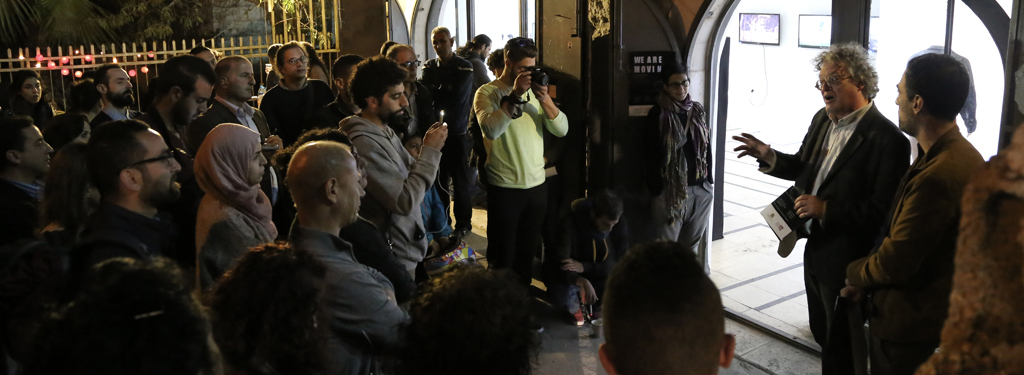The Public Programme (PP) is a dynamic, flexible programme. It adapts to various socio-political contexts and to the geographies it targets. The PP is mainly based on organising a series of events and activities designed to analyse and question complex social and economic processes of contemporary life.
This report casts light on key achievements of the PP in 2016-17.
The PP is complementary to the other three AMQF programmes, namely, the Culture and Arts Programme, the Childhood Programme and the Educational Research and Development Programme. The PP combines an approach of reciprocal organisation of activities and projects together with the AMQF programmes. While keeping a balance between its cultural and intellectual specificity, the PP works towards achieving the Foundation’s goals and pays attention to the best standards.
PP Establishment
Informed by the experience of cultural institutions and programmes around the world, the PP commenced its operations during the reporting period. In June 2016, the PP made a visit to the Mosaic Rooms in London. During a week’s visit in the UK, the PP also had meetings with major art and cultural institutions, namely, Royal Court, Richmix, Shubbak: A Window on Contemporary Arab Culture, HOME, Delfina Foundation, Institute of Contemporary Arts (ICA), Southbank Centre, and IKON Gallery. In addition to instituting future networking, these meetings aimed at learning from these institutions’ renowned public programmes and unique cultural experiences.
In conversation with the AMQF programmes and programmes as well as with beneficiaries, cultural practitioners and partner institutions, a number of programmes were developed to cover the whole spectrum of culture and education in Palestine. The concepts of these programmes were drawn from local needs, which pertain to the practice of culture under the current socio-political conditions and concurrent challenges.
Partner institutions were invited to guided tours around the AMQF new building to strengthen working relationships with local partner institutions and collectives. Tours were followed by a detailed presentation on the PP structure and programmes at the Khalil Sakakini Cultural Centre. The audience’s comments, including staying informed about global cultural developments and ensuring institutional networking, helped to build and develop the PP idea and document. On 1-5 November 2016, the PP participated and delivered a presentation, Spaces of Participation: Public Interventions, Contestations and Urban Transformations, in a workshop held at Darat al Funun, Amman. The workshop brought together academics and artists from a host of Arab and European countries. The PP also made two presentations at the Palestine: territoire, mémoire et projections festival (9-12 March 2017), MUCEM, Marseille.

